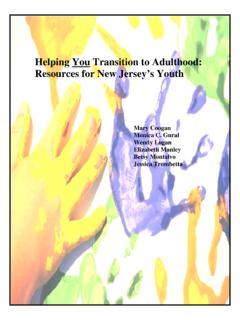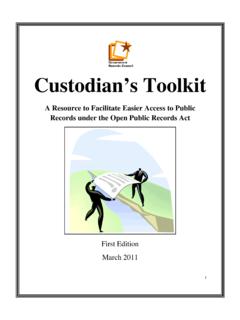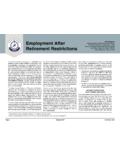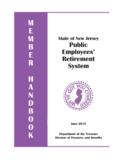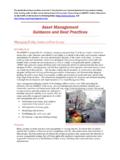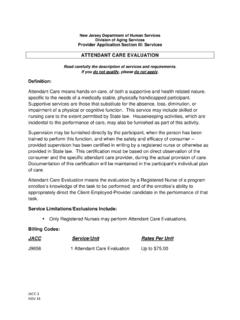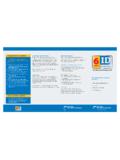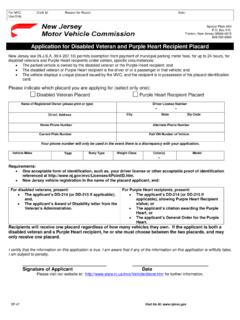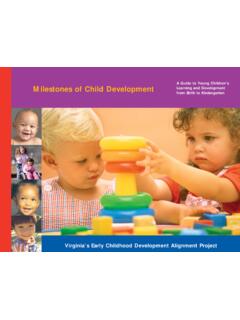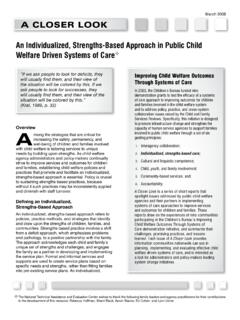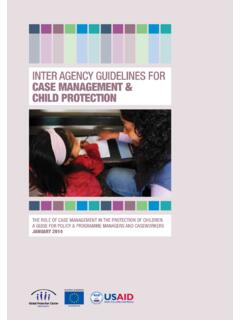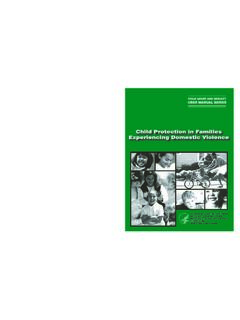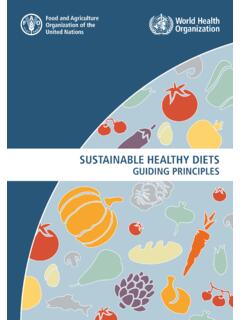Transcription of Medication Administration in Child Care Policy and Procedures
1 PURPOSE: This Policy was written to encourage communication between the parent, the Child s health care provider and the Child care provider to assure maximum safety in the giving of Medication to the Child who requires Medication to be provided during the time the Child is in Child care. INTENT: Assuring the health and safety of all children in our Center is a team effort by the Child care provider, family, and health care provider. This is particularly true when Medication is necessary to the Child s participation in Child care. Therefore, an understanding of each of our responsibilities, policies and Procedures concerning Medication Administration is critical to meeting that goal.
2 guiding principles and Procedures : ever possible, it is best that Medication be given at home. Dosing of Medication can frequently be done so that the childreceives Medication prior to going to Child care, and again when returning home and/or at bedtime. The parent/guardian isencouraged to discuss this possibility with the Child s health care provider. first dose of any Medication should always be given at home and with sufficient time before the Child returns to Child care toobserve the Child s response to the Medication given. When a Child is ill due to a communicable disease that requires medicationas treatment, the health care provider may require that the Child be on a particular Medication for 24 hours before returning to Child care.
3 This is for the protection of the Child who is ill as well as the other children in Child care. will only be given when ordered by the Child s health care provider and with written consent of the Child s parent/legalguardian. A Permission to Give Medication in Child Care form is attached to this Policy and will hereafter be referred to asPermission Form. All information on the Permission Form must be completed before the Medication can be given. Copies of this form can be duplicated or requested from the Child care provider. 4. As needed medications may be given only when the Child s health care provider completes a Permission Form that lists specificreasons and times when such Medication can be given in the Center will be administered by a staff member designated by the Center Director and will have beeninformed of the Child s health needs related to the Medication and will have had training in the safe Administration of prescription or over-the-counter Medication brought to the Child care center must be specific to the Child who is to receive themedication, in its original container, have a Child -resistant safety cap.
4 And be labeled with the appropriate information as follows: Prescription Medication must have the original pharmacist label that includes the pharmacists phone number, thechild s full name, name of the health care provider prescribing the Medication , name and expiration date of themedication, the date it was prescribed or updated, and dosage, route, frequency, and any special instructions for itsadministration and/or storage. It is suggested that the parent/guardian ask the pharmacist to provide the medicationin two containers, one for home and one for use in Child care. Over-the-counter (OTC) Medication must have the Child s full name on the container, and the manufacturer s originallabel with dosage, route, frequency, and any special instructions for Administration and storage, and expiration datemust be clearly visible.
5 Any OTC without instructions for Administration specific to the age of the Child receiving the Medication must have acompleted Permission Form from the health care provider prior to being given in the Child care of over-the-counter medications that may be given include: Antihistamines Decongestants Non-aspirin fever reducers/pain relievers Cough suppressants Topical ointments, such as diaper cream or medications will be stored: Inaccessible to children Separate from staff or household medications Under proper temperature control A small lock box will be used in the refrigerator to hold medications requiring Administration in Child Care Policy and Procedures the Child who receives a particular Medication on a long-term daily basis.
6 The staff will advise the parent/guardian one week priorto the Medication needing to be refilled so that needed doses of Medication are not or expired Medication will be returned to the parent/guardian when it is no longer needed or be able to be used by the of all Medication given to a Child are completed in ink and are signed by the staff designated to give the Medication . Theserecords are maintained in the Center. Samples of the forms used are attached to this Policy and include: Permission to Give Medication in Child Care Universal Child Health Record Emergency Contact Sheet Medication Administration Log Medication Incident/Error exchange between the parent/guardian and Child care provider about Medication that a Child is receiving should beshared when the Child is brought to and pick-up from the Center.
7 Parents/guardians should share with the staff any problems,observations, or suggestions that they may have in giving Medication to their Child at home, and likewise with the staff from the center to the parent/guardian. related to medications and their Administration will be safeguarded by the Center Director and may request to see/review their Child s Medication records maintained at the Center at any will sign all necessary Medication related forms that require their signature, and particularly in the case of theemergency contact form, will update the information as necessary to safeguard the health and safety of their will authorize the Director or Director Designee to contact the pharmacist or health care profiver for moreinformation about the Medication the Child is receiving.
8 And will also authorize the health care provider to speak with the Directoror Director s designee in the event that a situation arises that requires immediate attention to the Child s health and safety particularly is the parent/guardian cannot be reached. will read and have an opportunity to discuss the content of this Policy with the Director or Director s designee. Theparent signature on this Policy is an indication that the parent accepts the guidelines and Procedures listed in this Policy , and willfollow them to safeguard the health and safety of their Child . Parent/guardian will receive a copy of the signed Policy including single copies of the records referenced in this Policy .
9 Medication Administration in Child Care Policy will be reviewed annually by the following:18. Child Care Director_____ Licensing Consultant_____ Child Care Health Consultant_____ Parent/guardian_____ Other(specify)_____ Other(specify)_____ REFERENCES: Information for the Medication Administration in Child Care Policy was derived from the current Manual of Requirements for Child Care Centers in New Jersey and Caring For Our Children The National Health and Safety Performance Standards for Out-of-Home Child Care Programs, second edition. EFFECTIVE DATE OF THIS Policy : PARENT SIGNATURE: DATE: PARENT SIGNATURE: DATE: CENTER DIRECTOR/DESIGNEE SIGNATURE: DATE: The 5 Rights to Giving Medications to Children in Child Care The 5 Rights Child Is this the right Child even though you think you know you must check?
10 Do you know the Child s first and last name? Is this the same Child whose full name appears on the: Health care provider form Parental permission form Medication container label When unsure as to the identity of the Child : Photo record of Child to verify identity with the Director of the Child care agency, or designee who knowsthe Child to confirm the Identity of the childMEDICINE Is this the correct Medicine? Does the label on the Medication container match the name of the Medication as it appears on the Permissionto Administer Medication form? The health care provider communication section The parental permission section What is the expiration date on the Medication container label?
